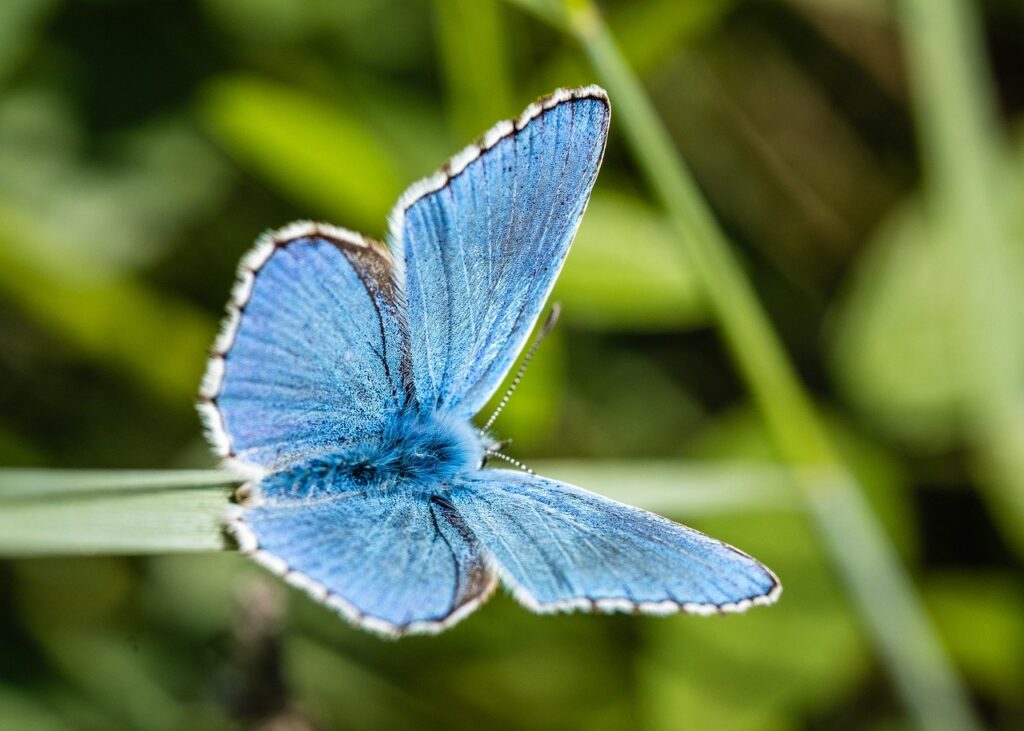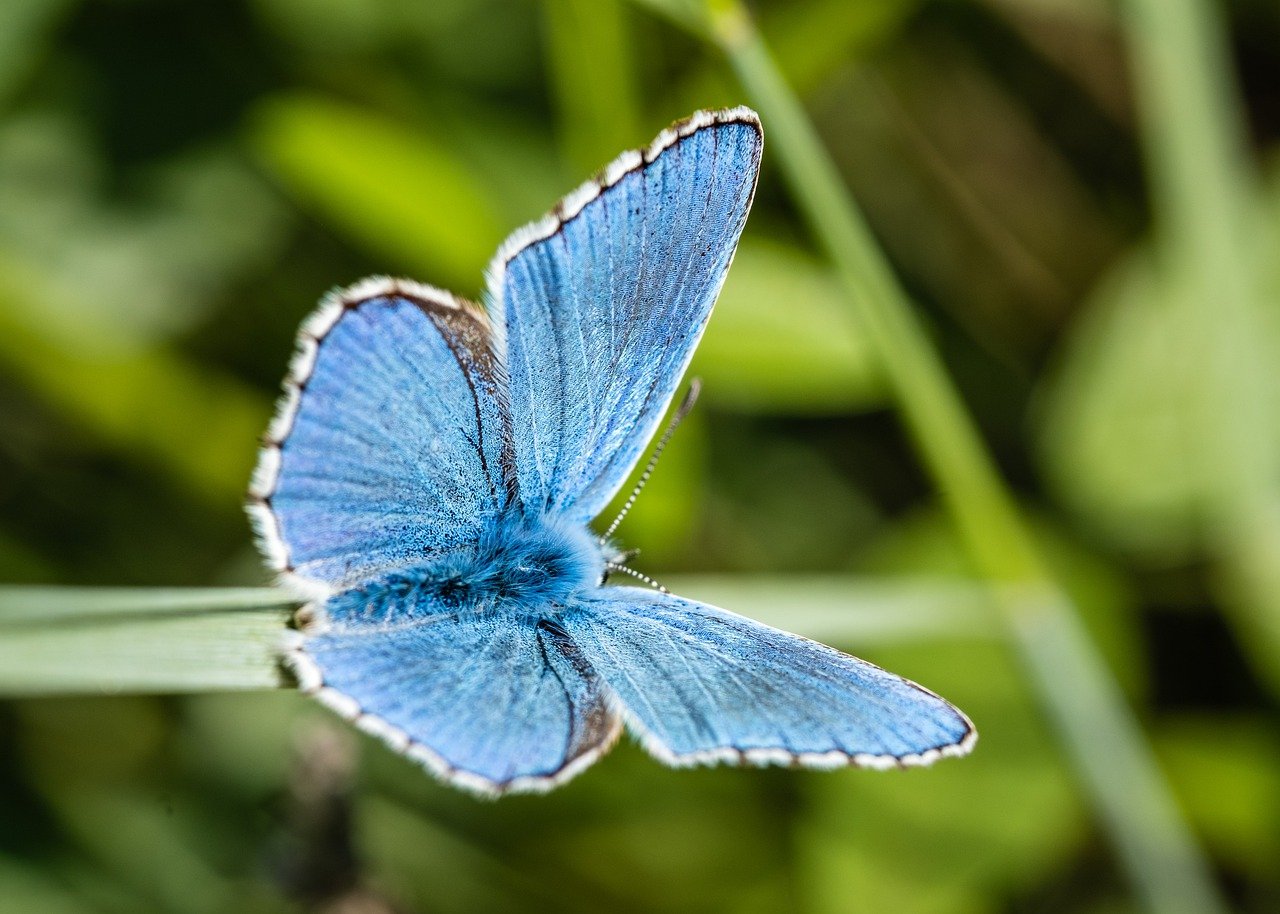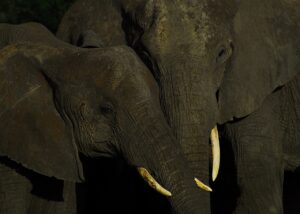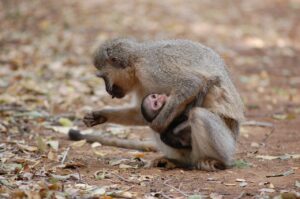Losing biodiversity is not just about losing a few species here and there; it has far-reaching consequences that affect our entire planet. When we disrupt the delicate balance of ecosystems by driving species to extinction, we disrupt the natural processes that sustain life. This article explores the wide-ranging impacts of losing biodiversity, from the collapse of food chains and loss of important ecosystem services to the devastating effects on human health and well-being. Join us as we uncover the hidden repercussions of this global crisis.

Loss of Ecosystem Services
Decline in Food Production
Losing biodiversity has significant consequences for food production. Biodiversity is crucial for the proper functioning of ecosystems, including the pollination of crops, the control of pests and diseases, and the maintenance of healthy soil fertility. However, with the loss of biodiversity, these essential ecosystem services are compromised, leading to a decline in food production.
Pollinators, such as bees, butterflies, and birds, play a vital role in the reproduction of flowering plants, including many food crops. However, the loss of pollinators due to habitat destruction and pesticide use can result in reduced crop yields and ultimately impact food security. Moreover, the loss of natural predators, which help control pests and diseases, can lead to increased crop damage and the need for higher pesticide use, posing risks to human health and the environment.
Reduced Water Quality and Availability
Biodiversity loss also affects water quality and availability. Healthy ecosystems, such as forests and wetlands, act as natural filters, trapping sediments and pollutants, and regulating water flow. However, when these ecosystems are destroyed or fragmented, there is a higher risk of water pollution, decreased water quality, and increased sedimentation in rivers and lakes.
Furthermore, the loss of biodiversity can disrupt the water cycle and affect water availability. Forests, for example, play a crucial role in regulating rainfall patterns through evapotranspiration, which is the process of water evaporating from plants and returning to the atmosphere as precipitation. Without intact ecosystems, the supply of freshwater can become compromised, leading to water scarcity and affecting human activities such as agriculture and industry.
Decreased Air Quality and Carbon Sequestration
Loss of biodiversity has implications for air quality and the regulation of greenhouse gases. Ecosystems, particularly forests, play a vital role in absorbing carbon dioxide through the process of photosynthesis and storing it in biomass. This natural process, known as carbon sequestration, helps mitigate climate change by reducing the concentration of greenhouse gases in the atmosphere.
However, with the destruction of forests and other ecosystems, such as wetlands and grasslands, there is a significant reduction in carbon sequestration capacity. This results in increased levels of carbon dioxide in the atmosphere, contributing to climate change and the associated impacts on human health and the environment.
Additionally, biodiversity loss can lead to decreased air quality, as ecosystems act as filters by absorbing pollutants and emitting oxygen. For instance, forests help reduce air pollution by capturing particulate matter and absorbing pollutants through their leaves. Without these ecosystems, the air quality deteriorates, potentially leading to respiratory problems and other adverse health effects.
Loss of Medicinal Resources
One of the most significant consequences of losing biodiversity is the loss of medicinal resources. Many cultures around the world rely on traditional medicine derived from plants and other organisms. However, with the loss of biodiversity, many potential sources of new medicines are being lost before they can even be discovered or fully understood.
Biodiversity boasts a wide range of chemical diversity, allowing for the discovery of novel compounds with medicinal properties. For example, medicinal plants have been a significant source of drugs for treating various ailments, including cancer, malaria, and high blood pressure.
The loss of biodiversity not only diminishes the availability of traditional medicines but also hampers the discovery of new treatments for diseases. Additionally, the depletion of medicinal resources can have serious implications for community health, particularly in regions where traditional medicine plays a vital role in healthcare systems.
Impact on Human Health
Increased Disease Transmission
The loss of biodiversity can lead to an increased risk of disease transmission from animals to humans, known as zoonotic diseases. When natural habitats are destroyed or fragmented, wildlife species may come into closer contact with humans, facilitating the transmission of pathogens.
Examples of zoonotic diseases include Ebola, Zika virus, and COVID-19. Deforestation, for instance, brings humans into closer proximity to previously isolated wildlife populations, increasing the likelihood of disease transmission. Moreover, the loss of biodiversity also affects the balance of ecosystems, which can lead to an increase in disease-carrying vectors, such as mosquitoes and ticks.
Loss of Natural Remedies
Biodiversity loss not only affects the discovery of new medicines but also diminishes the availability of natural remedies that have been used for centuries in traditional healing practices. Indigenous communities, for example, have relied on the rich biodiversity of their surroundings to treat various ailments.
The loss of traditional knowledge and the extinction of plants and animals used in traditional medicine jeopardize the availability of natural remedies. This can have significant consequences for communities who depend on these remedies for their healthcare needs, leading to a loss of cultural heritage and impacting their overall well-being.
Food Insecurity and Malnutrition
Biodiversity loss contributes to food insecurity and malnutrition. As mentioned earlier, the decline in food production resulting from the loss of ecosystem services can lead to decreased availability and affordability of nutritious food. This, in turn, can contribute to malnutrition, affecting the physical and cognitive development of individuals, particularly children.
Moreover, global food systems heavily rely on a limited number of staple crops, such as wheat, rice, and maize. However, the loss of biodiversity threatens the genetic diversity of these crops, making them more susceptible to diseases, pests, and climate change. Thus, there is an increased risk of crop failures and reduced resilience to environmental stresses, exacerbating the issue of food insecurity.

Disruption of Ecological Balance
Increased Pests and Invasive Species
The loss of biodiversity disrupts ecological balance, leading to an increase in pests and invasive species. In healthy ecosystems, a balance between species is maintained, preventing the dominance of any one organism or group. However, with the loss of biodiversity, this equilibrium is disturbed, creating opportunities for certain species to proliferate uncontrollably.
For example, the loss of natural predators and competitors can result in an explosion of pest populations. In agriculture, this can lead to significant crop damage and the need for increased pesticide use. Similarly, the introduction of invasive species, which often thrive in disturbed ecosystems, can outcompete native species and cause ecological imbalances with far-reaching consequences.
Imbalance in Predator-Prey Relationships
Biodiversity loss can disrupt predator-prey relationships, leading to imbalances within ecosystems. Predators play a critical role in maintaining the health and stability of ecosystems by controlling herbivore populations and preventing overgrazing.
However, with the loss of predators, herbivores can multiply rapidly, depleting vegetation and altering habitats. This cascade effect can impact the overall structure and composition of ecosystems, leading to further loss of biodiversity.
Loss of Pollination and Seed Dispersal
Pollinators, such as bees, butterflies, and birds, are essential for the pollination of flowering plants, including many food crops. However, biodiversity loss poses a significant threat to pollinators and their crucial role in ecosystem functioning.
With the decline in pollinator populations, the reproductive success of plants dependent on pollination can be compromised. This can result in reduced crop yields and the loss of plant species that rely on specific pollinators for reproduction. Similarly, the loss of seed dispersers, such as birds and mammals, affects plant regeneration and ecosystem resilience.
Degradation of Soil Fertility
Biodiversity loss contributes to the degradation of soil fertility, impacting agricultural productivity and ecosystem health. Healthy soils are teeming with a diverse array of organisms, including bacteria, fungi, nematodes, and earthworms, which play essential roles in nutrient cycling, decomposition of organic matter, and soil structure maintenance.
However, with the loss of biodiversity, these soil organisms and their functions are compromised. Soil degradation, resulting from intensive agricultural practices, deforestation, and pollution, reduces the ability of soils to support plant growth and maintain the overall health of ecosystems.
Loss of Biodiversity Hotspots
Extinction of Unique Species
One of the most devastating consequences of losing biodiversity is the extinction of unique and irreplaceable species. Biodiversity hotspots, which are regions with exceptionally high levels of species diversity and endemism, are particularly vulnerable to habitat destruction, climate change, and other human-induced factors.
Once a species goes extinct, it is lost forever, along with its ecological roles, genetic information, and potential contributions to human well-being. The loss of unique species not only erodes the beauty and diversity of our planet but also disrupts the intricate web of life, threatening the stability and resilience of ecosystems.
Disruption of Fragile Ecosystems
Biodiversity loss can disrupt fragile ecosystems that are highly specialized and adapted to specific environmental conditions. For example, coral reefs, mangroves, and alpine ecosystems are characterized by high species diversity and unique ecological interactions.
However, these delicate ecosystems are extremely vulnerable to human activities such as habitat destruction, pollution, and climate change. The loss of biodiversity in these ecosystems not only takes away their inherent value but also jeopardizes the services they provide, including coastal protection, carbon sequestration, and nursery habitats for countless marine and terrestrial species.
Loss of Ecotourism Opportunities
Biodiversity loss also has negative implications for ecotourism, which relies on intact and diverse ecosystems to attract visitors seeking unique and natural experiences. Many regions of the world, such as the Amazon rainforest, African savannahs, and coral reefs, are popular destinations for ecotourism due to their rich biodiversity.
However, with the loss of biodiversity, these attractions become less appealing, impacting the tourism industry and the local communities that depend on it for their livelihoods. Additionally, the loss of biodiversity-rich habitats and iconic species diminishes the cultural and aesthetic value of these regions, further diminishing their attractiveness as tourist destinations.

Negative Impact on Local Communities
Loss of Traditional Knowledge and Cultural Practices
Biodiversity loss has significant implications for indigenous and local communities who depend on natural resources for their livelihoods and cultural practices. Many communities have deep-rooted traditional knowledge and practices that are intrinsically linked to the surrounding biodiversity.
However, with the loss of biodiversity, this traditional knowledge is eroded, along with the cultural practices and identity associated with it. Indigenous communities often possess valuable insights into sustainable resource management, medicinal plant use, and ecological stewardship. Thus, the loss of biodiversity not only threatens their way of life but also hampers global efforts to conserve and manage natural resources sustainably.
Economic Instability
Biodiversity loss can have severe economic consequences for local communities, particularly those heavily reliant on natural resources for their economies. Ecosystem services, such as agriculture, fisheries, and forestry, are often major contributors to rural economies, providing livelihoods and income opportunities.
However, with the loss of biodiversity, these economic activities are compromised, leading to decreased productivity, reduced income, and economic instability. Moreover, the depletion of resources and the growing competition for scarce resources can also create social tensions, exacerbating inequality and poverty within communities.
Social Conflict and Migration
Biodiversity loss can contribute to social conflict and migration, particularly in regions where resources are scarce and competition for their use becomes more intense. When ecosystems are degraded or resources become scarce, it can lead to conflicts between different user groups, such as farmers, indigenous communities, and industrial interests.
Additionally, the loss of biodiversity can force local communities to migrate in search of alternative livelihoods and resources. Displacement due to environmental degradation and conflicts over land and resources can create social unrest, disrupt social cohesion, and contribute to the broader challenges of global migration.
Reduced Resilience to Environmental Changes
Vulnerability to Climate Change
Biodiversity loss reduces the resilience of ecosystems and communities to withstand the impacts of climate change. Ecosystems with high biodiversity tend to be more resilient and adaptable to changing environmental conditions, as they have a broader range of genetic traits and ecological interactions.
However, with the loss of biodiversity, ecosystems become more vulnerable to the impacts of climate change, such as extreme weather events, changing rainfall patterns, and rising temperatures. This reduced resilience can have cascading effects on human communities, including increased vulnerability to natural disasters and decreased adaptive capacity.
Increased Risk of Natural Disasters
Biodiversity loss increases the risk of natural disasters such as floods, landslides, and droughts. Healthy ecosystems, such as forests, wetlands, and coral reefs, provide natural buffers and act as protective barriers against natural hazards.
For example, forests help mitigate the effects of floods by absorbing and slowing down rainfall, preventing soil erosion and the overflow of rivers. Similarly, wetlands act as sponges, absorbing excess water and minimizing the impacts of storms and heavy rainfall. However, when these ecosystems are degraded or destroyed, the protective functions they provide are lost, leaving human communities more exposed and vulnerable to the destructive force of natural disasters.
Loss of Genetic Diversity
Decreased Adaptability to Changing Conditions
Genetic diversity is crucial for species’ adaptability and resilience to changing environmental conditions. Biodiversity encompasses the genetic variation within and between species, which provides the raw material for natural selection and evolution.
However, with the loss of biodiversity, genetic diversity is diminished, limiting the adaptive potential of species. Reduced genetic diversity can make species more susceptible to diseases, pests, and other environmental stresses. It weakens their ability to respond and adapt to changes, including those associated with climate change and human-induced disturbances.
Reduced Resilience to Diseases and Pests
Biodiversity loss reduces the resilience of ecosystems and agricultural systems to diseases and pests. Healthy ecosystems rely on biodiversity to maintain a balance between pests, pathogens, and natural enemies, such as predators and parasites. This balance helps regulate pest populations and prevents outbreaks.
However, with the loss of biodiversity, the natural control of pests and diseases is disrupted. This can lead to increased outbreaks, crop damage, and the need for higher pesticide use. Moreover, reduced genetic diversity in agricultural systems makes crops more susceptible to diseases and pests, further compromising food security and agricultural productivity.
Economic Consequences
Decreased Agricultural Productivity
Biodiversity loss has significant economic consequences for agriculture, one of the primary sectors impacted by the decline in ecosystem services. Agriculture relies on many ecosystem services, such as pollination, pest control, and nutrient cycling, which are provided by biodiversity-rich ecosystems.
With the loss of these ecosystem services, agricultural productivity declines, leading to reduced crop yields, increased production costs, and decreased profitability for farmers. Moreover, the dependence on a limited number of genetically uniform crops increases the vulnerability of agricultural systems to climate change, diseases, and pests.
Loss of Potential for Bioprospecting
Biodiversity loss represents a loss of potential for bioprospecting, which involves the search for new resources and genetic information for commercial and pharmaceutical purposes. Many novel drugs and industrial products have been derived from natural resources found in biodiversity-rich areas.
With the loss of biodiversity, there is a reduced pool of genetic diversity from which new therapies, products, and technologies can be developed. This diminishes the opportunities for economic growth, job creation, and technological innovation that can arise from bioprospecting and the sustainable use of biodiversity.
Decreased Revenue from Ecotourism
Biodiversity loss has negative economic implications for the ecotourism industry, which relies on intact and diverse ecosystems to attract visitors. Many countries rely on ecotourism as a significant source of foreign exchange earnings and employment opportunities in rural areas.
However, with the loss of biodiversity, the attractiveness of ecotourism destinations diminishes, leading to decreased revenue and job losses in local communities. This, in turn, can exacerbate poverty, inequality, and economic instability in regions heavily dependent on tourism.
Ethical and Moral Implications
Violation of the Rights of Other Species
Biodiversity loss raises ethical and moral concerns regarding the rights of other species to exist and thrive on Earth. Every species plays a unique role in the web of life and has inherent value, regardless of its usefulness to humans. The extinction of species due to human activities represents a violation of their right to exist and perpetuates a disrespectful and unsustainable relationship with the natural world.
The loss of biodiversity also raises questions about intergenerational justice, as future generations will be deprived of the beauty, diversity, and ecological services provided by the species that become extinct today. It is our ethical responsibility to preserve biodiversity for the well-being of present and future generations and to ensure the rights of all species are respected.
Interference with Evolutionary Processes
Biodiversity loss interferes with natural evolutionary processes that have shaped life on Earth for millions of years. Evolution occurs through the accumulation and transmission of genetic information across generations, giving rise to new species and adaptations to changing environments.
However, with the destruction of habitats, climate change, and other human-induced factors, the pace of extinction is accelerating, outpacing the rate of new species formation. This disrupts the natural balance of evolutionary processes, jeopardizing the future adaptability and resilience of ecosystems and species.
Loss of Cultural and Aesthetic Value
Deprivation of Natural Beauty
Biodiversity loss deprives us of the aesthetic and cultural value associated with diverse and beautiful ecosystems. Nature provides us with a source of inspiration, wonder, and spiritual connection. The vibrant colors of coral reefs, the majesty of old-growth forests, and the delicate balance of intricate ecological relationships evoke awe and appreciation for the natural world.
However, with the loss of biodiversity, these visual spectacles and sensory experiences are diminished, leaving us with a world that is less diverse, less complex, and less intriguing. The deprivation of natural beauty not only robs us of the joy and enrichment derived from these encounters but also dampens our overall well-being and sense of connectedness to the world around us.
Loss of Inspiration and Enjoyment
Biodiversity loss also deprives us of the inspiration and enjoyment that come from observing and studying the wonders of the natural world. Many scientific discoveries, technological innovations, and artistic expressions have been born out of our fascination and curiosity for the natural world.
Moreover, the diversity and complexity of ecosystems provide valuable lessons and insights into resilience, adaptability, and sustainable living. From nature, we learn valuable principles of design, engineering, and problem-solving that can be applied to various human endeavors.
Therefore, the loss of biodiversity deprives us of the ongoing inspiration and enjoyment derived from our interactions with the natural world, limiting our capacity to learn, innovate, and thrive in harmony with nature.
In conclusion, losing biodiversity has far-reaching consequences for our planet, our health, and our future generations. It affects food production, water quality, air quality, and the availability of medicinal resources. The disruption of ecological balance leads to increased pests, imbalances in predator-prey relationships, and the loss of pollination and seed dispersal. Biodiversity hotspots face the risk of species extinction, disruption of fragile ecosystems, and the loss of ecotourism opportunities. Local communities suffer the loss of traditional knowledge, economic instability, and social conflict. Reduced resilience to environmental changes and loss of genetic diversity further impact ecosystems and agricultural systems. Biodiversity loss has economic consequences, ethical implications, and deprives us of cultural and aesthetic value. It is crucial to recognize our collective responsibility to conserve and sustainably manage biodiversity for the benefit of all species, including ourselves. Only through concerted efforts and a shift towards more sustainable practices can we hope to mitigate the consequences of losing biodiversity and secure a healthier and more prosperous future for all.




